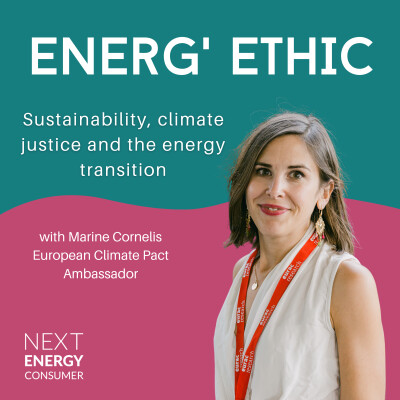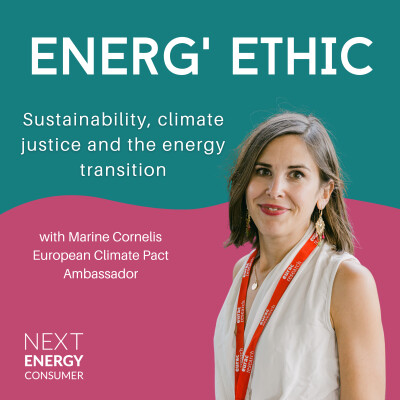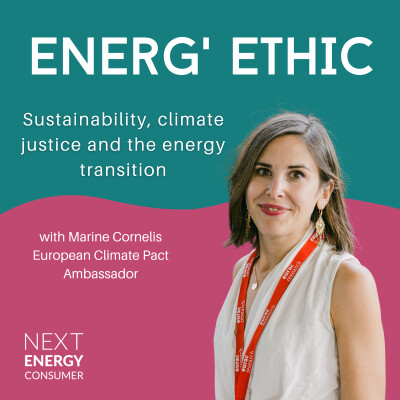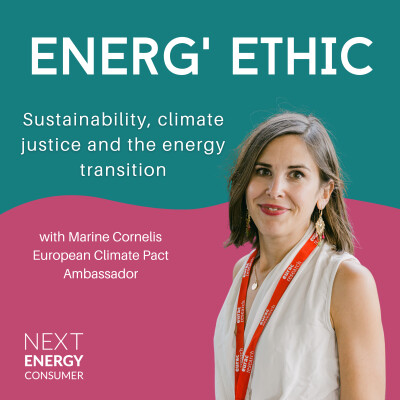Description
How Much Land Do We Really Need for 100% Renewable Energy?
Imagine a world where Europe runs entirely on renewable energy by 2040. That’s the vision Cosimo Tansini shares in this episode of Energ’Ethic—but how much land will that take? And can we achieve this without harming our planet's biodiversity?
In this engaging conversation, Marine Cornelis hosts Cosimo from the European Environmental Bureau (EEB) to break down the Paris Agreement Compatible (PAC) Scenario, which aims to fully power Europe with renewables. But what does that look like on the ground?
Cosimo offers a surprising comparison: “The land needed for 100% renewable energy in Europe is about 2.2%, roughly the size of Croatia." He adds, "Today, Europe uses almost triple that amount just for growing fodder crops to feed livestock.” That’s right—renewable energy could take up less space than we might imagine.
The conversation gets even more interesting when they dive into how renewables can do more than reduce emissions. Cosimo explains how renewable projects can strengthen communities, especially in rural areas: “Energy communities allow citizens to co-own their power plants, cut energy bills, and reinvest in local projects.” This isn’t just about electricity—it’s about empowerment.
But achieving 100% renewables means careful planning. Cosimo stresses the importance of protecting biodiversity and using tools like "sensitivity mapping" to find the best places for these projects. “We not only need space for renewables, but we also need space for nature,” he says.
Marine and Cosimo also discuss the need for energy sufficiency—using energy wisely, not just efficiently. “We’re too greedy for energy at the moment,” Cosimo admits. “We need to balance comfort with living within the limits of our planet.”
Key Points from the Episode:
1. Europe needs about 2.2% of its land to achieve 100% renewable energy, much less than the land used for fodder crops.
2. Energy communities give people a stake in their energy future, cutting bills and boosting local economies.
3. Renewables can be scaled up while protecting biodiversity, with proper planning and community involvement.
This episode offers fresh perspectives on the energy transition, showing that the shift to 100% renewables is not only possible but can also bring wide—ranging benefits if done right.
Want to know more about how much land we need, how energy projects can build stronger communities, and how we can balance renewable energy with nature?
Listen to Episode 57 now and join the conversation!
Keep up to date with new episodes straight from your inbox: https://podcast.ausha.co/energ-ethic-climate-justice-and-energy-transition?s=1
Reach out to Marine Cornelis via X @MarineCornelis or LinkedIn
Music: I Need You Here - Kamarius
Edition: Podcast Media Factory
Support Energ'Ethic on Patreon https://patreon.com/Energethic
© Next Energy Consumer, 2024
Hosted on Ausha. See ausha.co/privacy-policy for more information.





